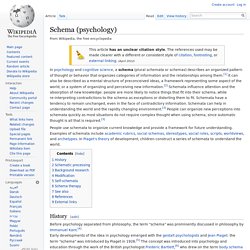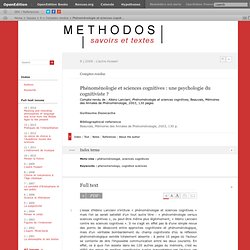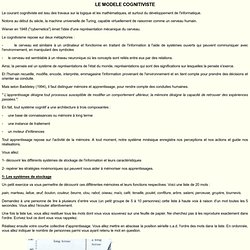

Papers/p39.pdf. Www.cesruc.org/uploads/soft/130221/1-130221161217.pdf. Redirect Notice. Knowledge Management Research & Practice - Table 1 for article: The theoretical foundations of knowledge management. Knowledge Management Research & Practice - The theoretical foundations of knowledge management. KNOWLEDGE MANAGEMENT: UNDERSTANDING THEORY AND DEVELOPING STRATEGY. Knowledge management. Knowledge management (KM) is the process of capturing, developing, sharing, and effectively using organizational knowledge.[1] It refers to a multi-disciplined approach to achieving organisational objectives by making the best use of knowledge.[2] An established discipline since 1991 (see Nonaka 1991), KM includes courses taught in the fields of business administration, information systems, management, and library and information sciences.[3][4] More recently, other fields have started contributing to KM research; these include information and media, computer science, public health, and public policy.[5] Columbia University and Kent State University offer dedicated Master of Science degrees in Knowledge Management.[6][7][8] History[edit] In 1999, the term personal knowledge management was introduced; it refers to the management of knowledge at the individual level.[14] Research[edit] Dimensions[edit] The Knowledge Spiral as described by Nonaka & Takeuchi.

Education Theory/Constructivism and Social Constructivism - UCD - CTAG. "Constructivism is the philosophical and scientific position that knowledge arises through a process of active construction.

"(Mascolol & Fischer, 2005) "As long as there were people asking each other questions, we have had constructivist classrooms. Constructivism, the study of learning, is about how we all make sense of our world, and that really hasn’t changed. "(Brooks, 1999) Background Constructivism and Social Constructivism are two similar learning theories which share a large number of underlying assumptions, and an interpretive epistemological position. Underlying Assumptions Jonassen (1994) proposed that there are eight characteristics that underline the constructivist learning environments and are applicable to both perspectives: Social Constructivism & Cognitive Development Theory. Schema (psychology) In psychology and cognitive science, a schema (plural schemata or schemas) describes an organized pattern of thought or behavior that organizes categories of information and the relationships among them.[1] It can also be described as a mental structure of preconceived ideas, a framework representing some aspect of the world, or a system of organizing and perceiving new information.[2] Schemata influence attention and the absorption of new knowledge: people are more likely to notice things that fit into their schema, while re-interpreting contradictions to the schema as exceptions or distorting them to fit.

Schemata have a tendency to remain unchanged, even in the face of contradictory information. Schemata can help in understanding the world and the rapidly changing environment.[3] People can organize new perceptions into schemata quickly as most situations do not require complex thought when using schema, since automatic thought is all that is required.[3] Www.inspq.qc.ca/pdf/publications/1228_ApprocheCompetences.pdf. Questioning Cognitivism and Constructivism in IR Theory: Reflections on the Material Structure of Ideas - Bieler - 2002 - Politics.
The Theory and Practice of Online Learning. Phénoménologie et sciences cognitives : une psychologie du cognitiviste ? 1L’essai d'Albino Lanciani s'intitule « phénoménologie et sciences cognitives » mais l’on se serait satisfait d’un tout autre titre : « phénoménologie versus sciences cognitives », ou peut-être même plus légitimement, « Albino Lanciani contre les sciences cognitives ».

Il ne s’agit en effet pas là d’une simple revue des points de désaccord entre approches cognitiviste et phénoménologique, mais d’un véritable bombardement du champ cognitiviste d’où la réflexion phénoménologique semble totalement absente : à peine 10 pages où l’auteur se contente de dire l’impossible communication entre les deux courants. En effet, ce à quoi l’on assiste dans les 120 autres pages du mémoire, c’est au défilé des prises de position cognitivistes jugées inacceptables par l’auteur, car réinterprétant avec un prétendu excès les questions philosophiques à la lumière des découvertes scientifiques, et restreignant chaque fois davantage le « pouvoir dire » de la philosophie.
Le cognitivisme. Le courant cognitiviste est issu des travaux sur la logique et les mathématiques, et surtout du développement de l'informatique.

Notons au début du siècle, la machine universelle de Turing, capable virtuellement de raisonner comme un cerveau humain. Le modèle CBAM cognitivisme. Educational Technology Innovation and Impact/Why use Technology in Education/Cognitivism - Wikibooks, open books for an open world. Cognitivism is a learning theory which deals with, in particular, how people perceive and remember information, solve problems and ultimately learn.

The term 'cognition' refers to all processes by which sensory input is transformed, reduced, elaborated, stored, recovered and used. A key focus of cognitive psychology is looking at how to communicate or transfer knowledge to learners in the most effective and efficient way by looking at mental processes and how the structure of the brain is changed during the course of learning.
The thinking behind cognitivism has come mainly as a result of the work of many learning theorists and psychologist. One Swiss psychologist, Jean Piaget, [link?] Was very influential in the development of the cognitivist theory but it was not until the1950s that cognitive psychology became a dominant theory of learning. Understanding the cognitivist theory can be beneficial for learning as the theory can be applied to all learning style preferences [link].